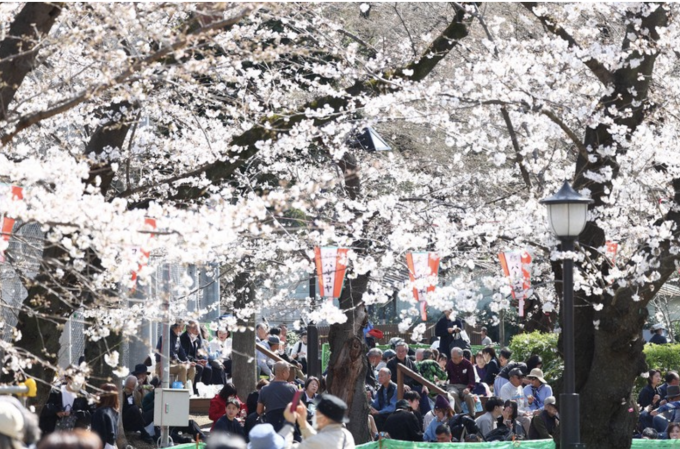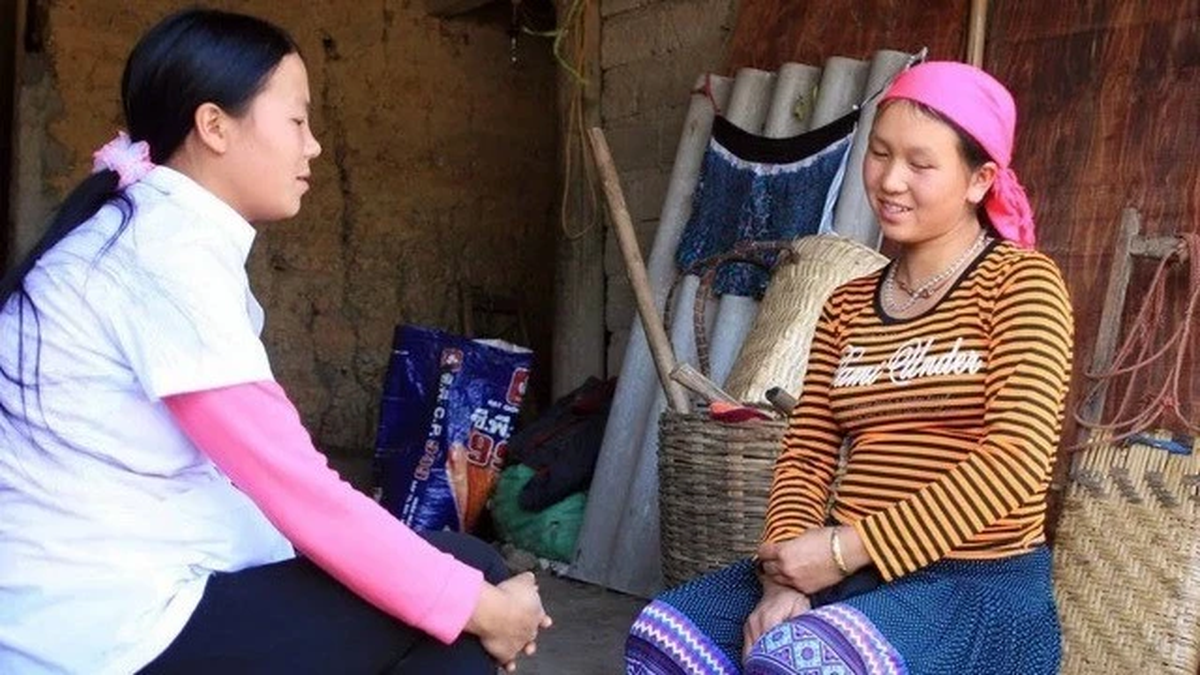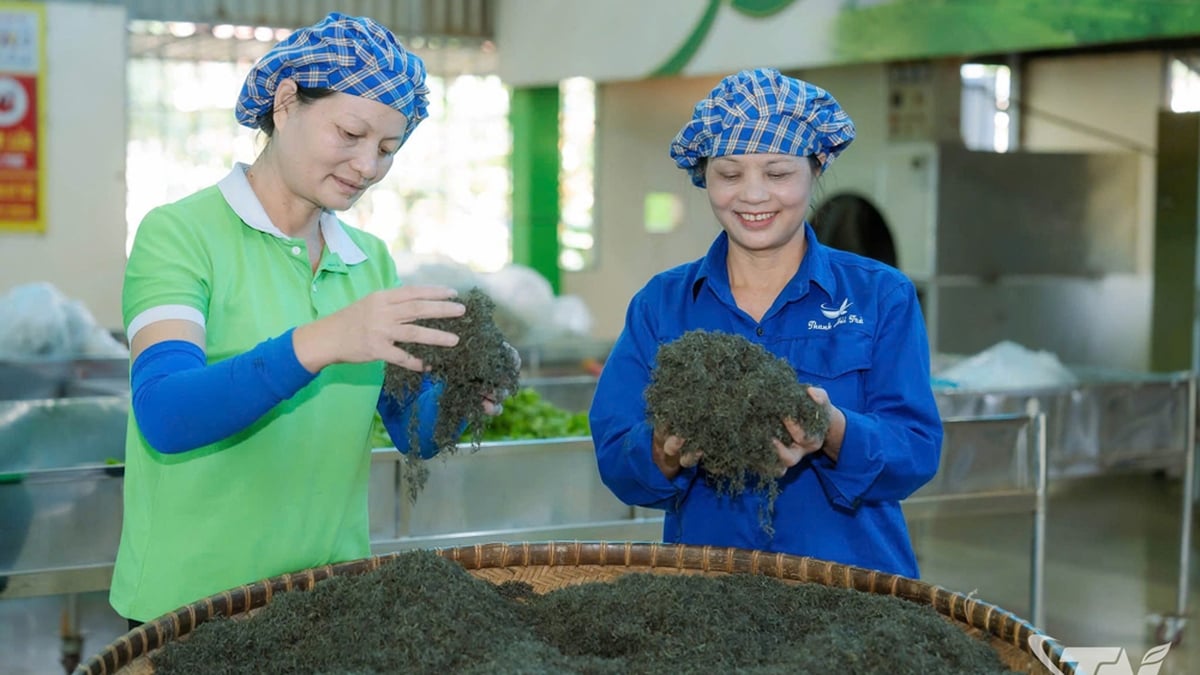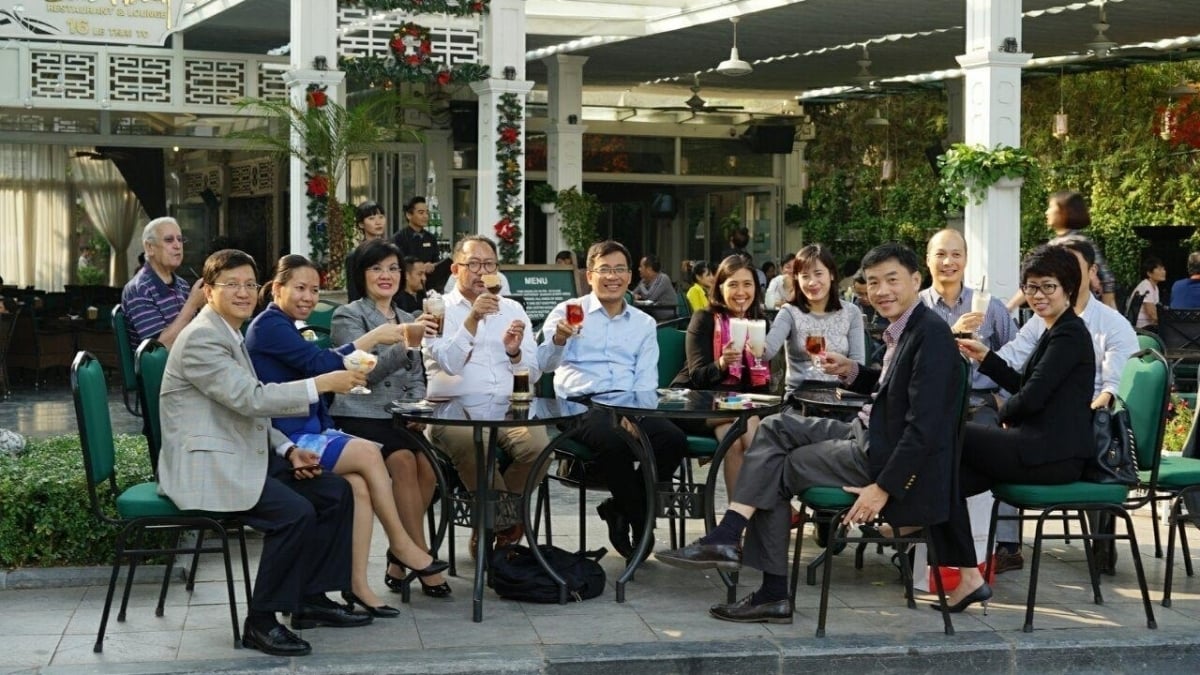Traditional Hanami (cherry blossom viewing) parties have been reduced in popularity due to economic and social changes.
Cherry blossom viewing and parties are a staple of spring in Japan. But a survey of 2,500 people aged 15 to 79 by data research firm Intage found that only 34.5% said they planned or could go cherry blossom viewing, with an average budget of $45. About 58% said the change in the yen exchange rate was causing them to limit their outings and reduce their budgets.
Hanamo parties with bosses and colleagues are also considered outdated in Japan. A survey by Job Soken, the research arm of career consulting firm Laibo Inc., found that 60% of Japanese people do not want to participate.

People admire cherry blossoms at Ueno Park, Tokyo, March 2023. Photo: Mainichi
The most common reasons included wanting to prioritize personal life at 51.4%, not wanting to use vacation days at 47.6%, and being tired of paying attention to others at 40.5%. 60% of people said Hanami was like work or part of work.
The group with the highest unwillingness to attend cherry blossom viewing parties is in their 40s at 69.5%, while the lowest rate is 55.3% in their 20s. The data shows that young people tend to be willing to attend parties.
The survey also showed that only 11.3% of companies organized Hanami, down from 49.3% in 2019, before the Covid-19 pandemic.
"Workers are tired of interacting with colleagues through Hanami," said Masakazu Hori, Laibo's communications manager.
The Japan Weather Association predicts cherry blossoms will peak in bloom on March 30 in Fukuoka, April 1 in Osaka and March 29 in Tokyo.
Ngoc Ngan (According to Mainichi )
Source


































































































Comment (0)